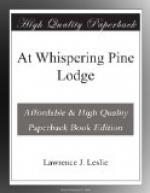“Mr. Wyatt you are mad. I cannot listen to you. Sitdown, I say, or you will swamp the boat. Stay—hold him—seize him! he is about to spring overboard! There—I knew it—he is over!”
As the Captain said this, Mr. Wyatt, in fact, sprang from the boat, and, as we were yet in the lee of the wreck, succeeded, by almost superhuman exertion, in getting hold of a rope which hung from the fore-chains. In another moment he was on board, and rushing frantically down into the cabin.
In the meantime, we had been swept astern of the ship, and being quite out of her lee, were at the mercy of the tremendous sea which was still running. We made a determined effort to put back, but our little boat was like a feather in the breath of the tempest. We saw at a glance that the doom of the unfortunate artist was sealed.
As our distance from the wreck rapidly increased, the madman (for as such only could we regard him) was seen to emerge from the companion-way, up which, by dint of a strength that appeared gigantic, he dragged, bodily, the oblong box. While we gazed in the extremity of astonishment, he passed, rapidly, several turns of a three-inch rope, first around the box and then around his body. In another instant both body and box ware in the sea—disappearing suddenly, at once and forever.
We lingered awhile sadly upon our oars, with our eyes riveted upon the spot. At length we pulled away. The silence remained unbroken for an hour. Finally, I hazarded a remark.
“Did you observe, Captain, how suddenly they sank? Was not that an exceedingly singular thing? I confess that I entertained some feeble hope of his final deliverance, when I saw him lash himself to the box, and commit himself to the sea.”
“They sank as a matter of course,” replied the Captain, “and that like a shot. They will soon rise again, however—but not till the salt melts.”
“The salt!” I ejaculated.
“Hush!” said the Captain, pointing to the wife and sisters of the deceased. “We must talk of these things at some more appropriate time.”
* * * * *
We suffered much, and made a narrow escape; but fortune befriended us, as well as our mates in the long boat. We landed, in fine, more dead than alive, after four days of intense distress, upon the beach opposite Roanoke Island. We remained there a week, were not ill-treated by the wreckers, and at length obtained a passage to New York.
About a month after the loss of the Independence, I happened to meet Captain Hardy in Broadway. Our conversation turned, naturally, upon the disaster, and especially upon the sad fate of poor Wyatt. I thus learned the following particulars.




